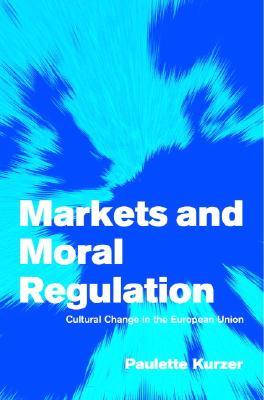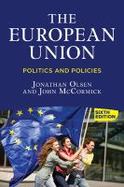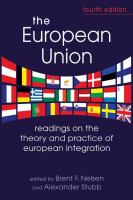Attendance/Grade Policy
Attendance and participation in interaction, individual assignments, group exercises, simulations, role playing, etc. are valuable aspects of any course because much of the learning comes from discussions in class with other students. It is expected that you attend all classes and be on time except for excused emergencies.
Excused absences are given for professor mandated activities or legally required activities such as emergencies or military assignments. It is the policy of the University to excuse absences of students that result from religious observances and to provide without penalty for the rescheduling of examinations and additional required class work that may fall on religious holidays. Unavoidable personal emergencies, including (but not limited to) serious illness; delays in getting to class because of accidents, etc.; deaths and funerals, and hazardous road conditions will be excused.
If you are obtaining financial assistance (TA, STAP, FA, VA, Scholarship, etc.) to pay all or part of your tuition cost, you must follow your funding agency/institution’s policy regarding “I” (Incomplete) grades unless the timeline is longer than what the University policy allows then you must adhere to the University policy. Students who receive Financial Aid must resolve/complete any “I” (Incomplete) grades by the end of the term or he/she may be placed on “financial aid probation.” If the “I” grade is not resolved/completed by the end of the following term, the student’s Financial Aid may be suspended make the student ineligible for further Financial Aid.
Students are responsible for meeting the guidelines of Tuition Assistance and Veterans Assistance. See the education counselor at your local education center for a complete description of your TA or VA requirements.
OU faculty will submit grades online through ONE not later than 30 days after the course end date. Course end dates are approximately one calendar month after the final seminar date on this syllabus and are provided on the official scheduling website for reference.
Academic Integrity and Student Conduct
Academic integrity means honesty and responsibility in scholarship. Academic assignments exist to help students learn; grades exist to show how fully this goal is attained. Therefore all work and all grades should result from the student's own understanding and effort.
Academic misconduct is any act which improperly affects the evaluation of a student’s academic performance or achievement. Misconduct occurs when the student either knows or reasonably should know that the act constitutes misconduct. Academic misconduct includes: cheating and using unauthorized materials on examinations and other assignments; improper collaboration, submitting the same assignment for different classes (self-plagiarism); fabrication, forgery, alteration of documents, lying, etc…in order to obtain an academic advantage; assisting others in academic misconduct; attempting to commit academic misconduct; destruction of property, hacking, etc…; intimidation and interference with integrity process; and plagiarism. All students should review the Student’s Guide to Academic Integrity at http://integrity.ou.edu/students_guide.html
Students and faculty each have responsibility for maintaining an appropriate learning environment. All students should review policies regarding student conduct at http://studentconduct.ou.edu/
Accommodation Statement
The University of Oklahoma is committed to making its activities as accessible as possible. For accommodations on the basis of disability, please contact your local OU Site Director.
Adjustment for Pregnancy/Childbirth-Related Issues
Should you need modifications or adjustments to your course requirements because of documented pregnancy-related or childbirth-related issues, please contact the professor as soon as possible to discuss. Generally, modifications will be made where medically necessary and similar in scope to accommodations based on temporary disability. Please see http://www.ou.edu/content/eoo/faqs/pregnancy-faqs.html.
Title IX Resources
For any concerns regarding gender-based discrimination, sexual harassment, sexual misconduct, stalking, or intimate partner violence, the University offers a variety of resources, including advocates on-call 24/7, counseling services, mutual no-contact orders, scheduling adjustments, and disciplinary sanctions against the perpetrator. Please contact the Sexual Misconduct Office at [email protected] or (405) 325-2215 (8-5), or the Sexual Assault Response Team at (405) 615 -0013 (24/7) to report an incident. To learn more about Title IX, please visit the Institutional Equity Office’s website at http://www.ou.edu/content/eoo.html
Course Policies
Extended Campus (also and formerly known as Advanced Programs) policy is to order books in paperback if available. Courses, dates, and professors are subject to change. Please check with your OU Site Director. Students should retain a copy of any assignments that are e/mailed to the professor for the course. Neither duplicating services nor office supplies are provided.
Any and all course materials, syllabus, lessons, lectures, etc. are the property of professor teaching the course and the Board of Regents of the University of Oklahoma and are protected under applicable copyright.
For more information about OU Extended Campus, visit our website at: http://www.goou.ou.edu/
Statement on Respect
The classroom should provide a safe learning environment where students can express their views without fear of reprisal. That freedom of expression must be balanced by demonstrated respect for other’s viewpoints and appropriate and reasonable sensitivity, especially within the context of scholarly disagreement. Disrespectful or uncivil dialogue (including, but not limited to, personal attacks, insults, or harassment) will not be tolerated.
Recording Devices/Phones/Computers
It is important for students to be fully present during class to fully benefit from lectures, discussions, and experiential assignments. Class sessions may not be tape-recorded. All telephones and pagers should be turned off or placed on silent mode. Computers may not be used during class. Students who require an exception to this policy should discuss exceptional circumstances with the professor.



